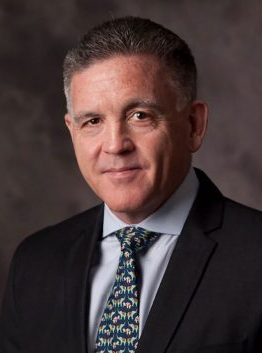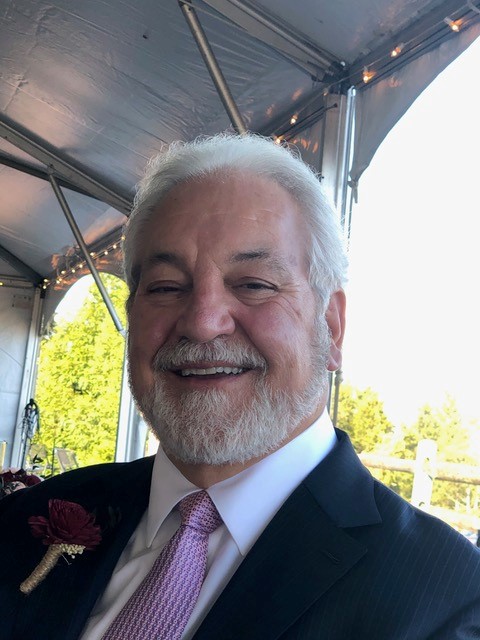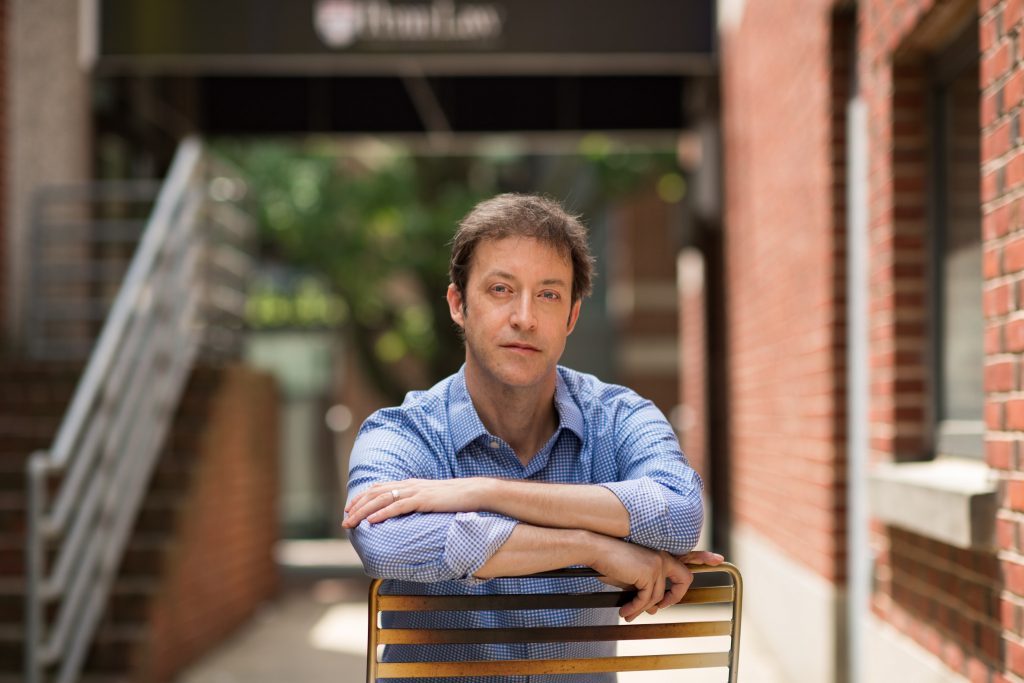Indictment of former Trump advisor John Bolton is ‘troubling’

Mark Zaid, member of CERL’s Executive Board, spoke with CNN about the indictment of John Bolton, former national security advisor to President Donald Trump. He explains the practice of writing books, whereby some senior government officials bring classified information home, is being challenged. Zaid addresses questions about why Bolton stands accused of these charges now and […]
‘Profound consequences’ to invoking war powers to target Venezuelan drug cartel

President Donald Trump has once again launched a strike against a vessel suspected of transporting drugs in the Caribbean Sea. At War on the Rocks, Professor Geoffrey Corn, member of CERL’s Advisory Council, argues there are far-reaching consequences to invoking wartime powers to address what is by all measures a law enforcement problem. These attacks […]
Experts question Trump’s legal arguments for his war against drug trafficking

CERL’s Professors Geoffrey Corn and Claire Finkelstein are quoted in reporting by the Associated Press on the Trump administration’s legal justifications for targeting alleged drug-smuggling boats in the Caribbean and the recent authorization of covert CIA action in Venezuela. They contend President Trump’s invocation of war powers rests on dubious grounds. Geoffrey S. Corn is […]
Fundraising efforts for new White House ballroom put companies in a tough spot

President Donald Trump hosted dozens of business leaders at the White House on Wednesday evening for a dinner in connection with his efforts to construct a multimillion-dollar ballroom that would seat over 650 individuals. CERL’s Professor Claire Finkelstein is quoted in exclusive reporting by the Wall Street Journal discussing the dinner affair and the pressure […]
Trump-Hegseth messaging will have ‘corrosive effect’ on commitment to rule of law values

Addressing over 800 military leaders at Quantico last month, President Donald Trump and Secretary Pete Hegseth presented a new vision for the future of U.S. warfighting, casting the rules of engagement as “stupid” and “overbearing.” Professor Geoffrey Corn, member of CERL’s Advisory Council, spoke with NPR’s Meghna Chakrabarti on the program On Point about how […]
Trump’s approval of CIA operations in Venezuela raises concerns about compliance with international law

The Trump administration has authorized the U.S. Central Intelligence Agency to carry out lethal action in Venezuela. The move comes after President Donald Trump targeted six ships in the Caribbean with alleged involvement in drug smuggling. Professor Mary Ellen O’Connell, member of CERL’s Advisory Council, wrote in a statement to Newsweek that Venezuela would have […]
Reaction to immigration tactics being used as ‘pretext’ for National Guard deployments

Benjamin Farley, member of CERL’s Advisory Council, spoke with NPR about President Donald Trump’s deployments of the National Guard to aid in immigration enforcement. He explained the reaction to the Trump administration’s immigration enforcement tactics is being used as a “pretext” for sending the National Guard to U.S. cities. Benjamin Farley is a member of […]
Will President Trump invoke the Insurrection Act?

President Donald Trump has indicated he is not opposed to invoking the Insurrection Act if necessary. CERL’s Claire Finkelstein is quoted in an article by Josh Meyer of USA Today addressing the history of this 19th century Act which gives presidents the power to use federal troops to quell domestic civil unrest. Claire Finkelstein […]
Courts weighing legality of National Guard deployments are setting a ‘clear record’ of conditions on the ground

Judges assessed on Thursday whether President Trump exceeded his authority in ordering the deployment of federal troops to Chicago, Illinois and Portland, Oregon. CERL’s Professor Claire Finkelstein joined Here & Now‘s Robin Young to discuss what is being tested by the courts and how the ruling in California’s National Guard lawsuit could shape these and […]
Orders to deploy federal troops to Portland are ‘clearly illegal’

On Oct. 5, the Pentagon announced President Donald Trump had ordered the deployment of troops from California’s National Guard to Portland, Oregon to aid federal personnel, including those in U.S. Immigration and Customs Enforcement (ICE). A judge has temporarily blocked this order. CERL’s Professor Claire Finkelstein told Deutsche Welle that using the military for domestic […]
Future of federally funded scientific research is on the line

At the MIT Press Reader, Professor Jonathan D. Moreno, member of CERL’s Affiliated Faculty, discusses the fragile relationship between science and government. Federal funding of research has led to such advancements as atomic power and the internet, expanding both the hard and soft powers of the United States on a global scale. Today, skepticism about […]
Calling drug smugglers ‘unlawful combatants’ goes too far

The Trump administration told Congress confidentially this week that drug smugglers are to be designated as “unlawful combatants” in an “armed conflict” between the United States and drug cartels, the New York Times reports. Professor Geoffrey Corn, member of CERL’s Advisory Council, explains at the Times that targeting civilians who are not actively engaged in […]
Finkelstein, Roosevelt discuss Trump’s NSPM-7 memo

Days after deeming Antifa a domestic terrorist organization, President Trump issued a memorandum, “Countering Domestic Terrorism and Organized Political Violence,” known as “NSPM-7,” that lays out a law enforcement strategy to disrupt groups involved in efforts to instigate political violence. At the Daily Pennsylvanian, Professors Claire Finkelstein, faculty director of CERL, and Kermit Roosevelt, member […]
Case against Comey ‘isn’t a serious’ one

Just days after President Trump told Attorney General Pam Bondi to more vigorously investigate his political opponents, a federal grand jury charged former FBI Director James Comey on two counts, one relating to making a false statement to a Senate committee and the other to obstruction of Congress. Robert Kelner, member of CERL’s Executive Board, […]
Simmons elected 2025-26 president of APSA

Join us in congratulating Professor Beth Simmons, member of CERL’s Affiliated Faculty, on her election as president of the American Political Science Association (APSA), a leading political science association serving over 11,000 members. She will serve a term from 2025-2028. Beth Simmons is Andrea Mitchell University Professor of Law and Political Science at the University […]
Can Trump silence retired military officers by using Article 88 of the UCMJ?

Under Article 88 of the Uniform Code of Military Justice, retired service members could be court-martialed for using “contemptuous words” against the president or other high-level government officials. At Just Security, George Croner, member of CERL’s Advisory Council, argues the concern around President Trump applying this Article to seek retribution and mute criticism is “decidedly real,” and […]
UK, France recognition of Palestinian statehood could imperil European security

This week, the United Kingdom and France joined other countries in formally recognizing Palestinian statehood. Ahead of their announcements, Professor Orde Kittrie, member of CERL’s Advisory Council, wrote at Foundation for Defense of Democracies that a move on their part to recognize Palestine as a state would “reward terrorism” and put at risk European security […]
‘Diluting’ the law to justify policy decisions comes at a great cost

International lawyers who have adopted the approach of shaping the law to fit policy decisions are partly responsible for the eroding commitment to legal frameworks, Professor Mary Ellen O’Connell, member of CERL’s Advisory Council, writes in an opinion for Verfassungsblog. In discussing the Trump administration’s recent strikes on boats suspected of carrying drugs, she warns […]
Using force against three boats suspected of smuggling drugs is ‘legally unjustified’

The Trump administration claims to have targeted and struck “three boats” departing from Venezuela over the past few days. Professor Geoffrey Corn, member of CERL’s Advisory Council, spoke with the Washington Examiner about these strikes, noting that they lack legal justification. Geoffrey S. Corn is the George R. Killam, Jr. Chair of Criminal Law and […]
Constitution’s Commerce Clause is central to debate around state-federal balance of power

In a film produced by the Annenberg Public Policy Center’s Leonore Annenberg Institute for Civics, Professor Kermit Roosevelt, member of CERL’s Affiliated Faculty, discusses a section of the U.S. Constitution known as the Commerce Clause, which gives Congress regulatory power over commercial activity among states and foreign nations. The clause plays a critical role in […]
Strike on ship from Venezuela killing 11 marks a shift toward “outlawry”

The killing of the 11 people onboard the ship from Venezuela suspected of transporting illegal drugs signals a move on the part of the Trump administration toward “outlawry,” according to CERL Advisory Council Member Benjamin Farley in an opinion at Foreign Policy. In painting drug smugglers as terrorists and using dubious legal justifications, the president […]
Lifting of ban on racial profiling will put at risk constitutional rights of millions of Americans

CERL’s Professor Claire Finkelstein joined Al Jazeera to discuss the lifting of a restriction that barred immigration agents from stopping individuals based on their race or ethnicity, language, location, or employment. The ruling upends longstanding legal precedent and threatens the constitutional rights of Americans, Prof. Finkelstein notes. Claire Finkelstein is the Algernon Biddle Professor of […]
Were military lawyers ‘steamrolled’ in decision to launch Tren de Aragua boat attack?

There is near-total agreement among experts in military law that the recent attack against the boat in international waters suspected of carrying drugs was a violation of domestic and international law. Yet military lawyers who bear an obligation to these laws presumably reviewed the order as it moved through the chain of command. In an […]
U.S. strike on drug-transporting boat in Caribbean violated ‘right to life’

The U.S. military strike against an alleged drug-transporting boat off the coast of Venezuela was unlawful, according to CERL Advisory Council Member Mary Ellen O’Connell in an opinion for The Conversation. The United States is party to a human rights treaty that sets out the “inherent right to life” in times of peace, as well […]
Gaming: The new frontier of military training

At War on the Rocks, General Joseph Votel, member of CERL’s Executive Board, explains how gaming can enhance military training by building skills that are critical for modern warfare, simulating environments that would otherwise be difficult to replicate, and allowing the United States to maintain its advantage over adversaries. He urges defense leaders to invest […]
Former senior government officials warn Trump’s ban on collective bargaining ‘undermines national security’

A group of former high-level national security officials in the U.S. government, including CERL Executive Board Member Alberto Mora, filed an amicus brief in the case AFGE, AFL-CIO, et al. v. Trump asserting that an executive order issued by President Trump, which attempts to remove collective bargaining rights from a large number of federal works […]
Strike on Venezuela boat allegedly carrying drugs was a violation of international law

The U.S. military this week struck a boat from Venezuela purportedly carrying drugs, killing 11 people. Professor Mary Ellen O’Connell is quoted at Reuters discussing the legality of the operation. The United States “had no right” to lethally target the individuals suspected of involvement with drug trafficking, she said. She is also quoted at The […]
Raid on Trump’s former national security advisor appeared ‘vindictively suspicious’

Mark Zaid, member of CERL’s Executive Board, was interviewed by Chanel Four Television about the raid conducted by the FBI on Trump’s former national security advisor, John Bolton, calling it “vindictively suspicious.” Mark S. Zaid, Esq., is a Washington, D.C. based attorney who specializes in crisis management and innovatively handling simple and complex administrative and […]
U.S. military action in Mexico against cartels would violate UN Charter

Professor Geoffrey Corn, member of CERL’s Advisory Council, is quoted in a Newsweek article discussing President Trump’s reported plans to carry out strikes against cartels in Mexico. Without the prior authorization of Mexico, any U.S. military operations in Mexico would be “an act of aggression” in breach of international law, Professor Corn explains. Geoffrey S. […]

